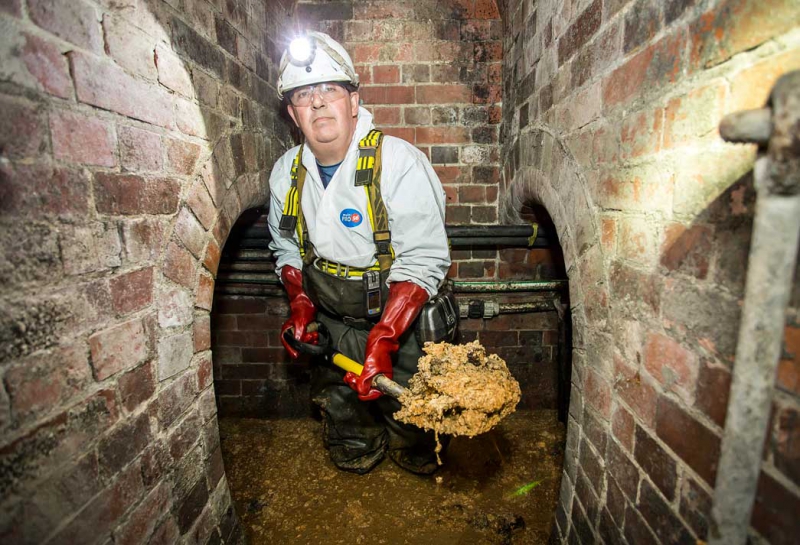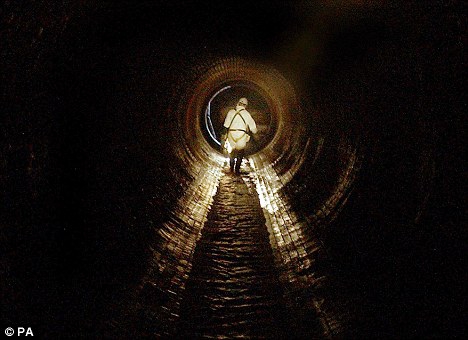- Contact 0870 350 7767
- |
- Advertise
Home > RGR Facilities Ltd (Grease Traps) > WHY MAINTAIN YOUR GREASE TRAP?
WHY MAINTAIN YOUR GREASE TRAP?
 News and PR from RGR Facilities Ltd (Grease Traps) - Published 24 January 2020
6 reasons regular maintenance and servicing is so important:
News and PR from RGR Facilities Ltd (Grease Traps) - Published 24 January 2020
6 reasons regular maintenance and servicing is so important:
6 Reasons regular maintenance and servicing is so important
Grease traps are increasingly becoming a key feature in commercial kitchens across the UK and Ireland, with many landlords now requiring grease traps to be installed to prevent FOG (fats, oils, and grease) from entering the sewer water. However, like many appliances within a kitchen, grease traps require regular maintenance and servicing to keep running constantly and efficiently.
Here are 6 very important reasons why:
1. Foul Smell
Grease traps work by accumulating the FOG in its tank. However, over time this FOG can begin to decompose and produce a rotting smell, which if left untreated can permeate the entire restaurant. Neither your staff, nor your customers will appreciate the dreadful smell of decomposing FOG and in severe cases this will disrupt business by discouraging visitors and damaging the businesses reputation.
2. Impossible Cleaning
A grease trap not only captures FOG, it also collects any solid food particles. This food settles at the bottom of the tank and needs regularly removing by the kitchen staff using the strainer. This is very easy to do if it is done daily, however if this food is left over time it congeals into a thick hard mass which not only impedes the function of the grease trap but is near impossible to clean.
3. Blockages
If your grease trap isnt cleaned properly and waste is left to build up in the tank, the additional food waste and FOG will begin to flow down into the sewer system. Over time this causes severe blockages in the pipework, inhibiting the flow of waste water and causing back-ups and overflows that are ultimately very expensive to repair.
4. Expense
Much of the solid food waste and FOG collected by the grease traps form chemical compounds, such as sulphuric acid, as they decompose. If a tank is left uncleaned this toxic acid can damage the steel and walls of the interceptor, irreparably damaging the machine and forcing you to buy an expensive new unit.
5. Penalties
There are several Acts of Parliament, Regulations and Legislations which commercial kitchen operators must be aware of in respect of duty of care and legal obligations relating to the management and disposal of fats, oil and grease produced during the normal course of business. Penalties can apply for not having a grease trap, or improper maintenance. In both cases, you can face heavy fines, the suspension of your operations, or have your licence revoked until you resolve key problems.
6. Reputation, Reputation, Reputation.
The factors above highlight multiple issues that could lead to a heavy loss of business. From foul smells to sewer works, fine and even forced closures. Any and all these factors would not only have short-term immediate losses in business, but could have a long-lasting effect on your reputation, making it difficult or even impossible to regain consumer confidence and maintain your competitive edge.
Grease traps are increasingly becoming a key feature in commercial kitchens across the UK and Ireland, with many landlords now requiring grease traps to be installed to prevent FOG (fats, oils, and grease) from entering the sewer water. However, like many appliances within a kitchen, grease traps require regular maintenance and servicing to keep running constantly and efficiently.
Here are 6 very important reasons why:
1. Foul Smell
Grease traps work by accumulating the FOG in its tank. However, over time this FOG can begin to decompose and produce a rotting smell, which if left untreated can permeate the entire restaurant. Neither your staff, nor your customers will appreciate the dreadful smell of decomposing FOG and in severe cases this will disrupt business by discouraging visitors and damaging the businesses reputation.
2. Impossible Cleaning
A grease trap not only captures FOG, it also collects any solid food particles. This food settles at the bottom of the tank and needs regularly removing by the kitchen staff using the strainer. This is very easy to do if it is done daily, however if this food is left over time it congeals into a thick hard mass which not only impedes the function of the grease trap but is near impossible to clean.
3. Blockages
If your grease trap isnt cleaned properly and waste is left to build up in the tank, the additional food waste and FOG will begin to flow down into the sewer system. Over time this causes severe blockages in the pipework, inhibiting the flow of waste water and causing back-ups and overflows that are ultimately very expensive to repair.
4. Expense
Much of the solid food waste and FOG collected by the grease traps form chemical compounds, such as sulphuric acid, as they decompose. If a tank is left uncleaned this toxic acid can damage the steel and walls of the interceptor, irreparably damaging the machine and forcing you to buy an expensive new unit.
5. Penalties
There are several Acts of Parliament, Regulations and Legislations which commercial kitchen operators must be aware of in respect of duty of care and legal obligations relating to the management and disposal of fats, oil and grease produced during the normal course of business. Penalties can apply for not having a grease trap, or improper maintenance. In both cases, you can face heavy fines, the suspension of your operations, or have your licence revoked until you resolve key problems.
6. Reputation, Reputation, Reputation.
The factors above highlight multiple issues that could lead to a heavy loss of business. From foul smells to sewer works, fine and even forced closures. Any and all these factors would not only have short-term immediate losses in business, but could have a long-lasting effect on your reputation, making it difficult or even impossible to regain consumer confidence and maintain your competitive edge.
Other announcements from RGR Facilities Ltd (Grease Traps)
-
WHY DO I NEED A GREASE TRAP? THE LEGAL REQUIREMENTS
Fat, oil and grease when cooled congeal, harden and stick to the inner lining of drainage pipe restricting wastewater flow and blocking pipes.
24 Jan 2020
-
FIVE FACTS ABOUT FATBERGS
Fatbergs provide a glimpse into the darker side of modern life. These oily beasts are growing right beneath our feet and clogging sewers around the world. Here are just five facts:
24 Jan 2020
-
MAJOR FATBERG BLOCKS THE SEWERS OF A SOUTHERN SEASIDE TOWN
Barely a week into 2019 a sizeable, 64 metre long fatberg has reared its head beneath the Southern seaside town of Sidmouth...
24 Jan 2020






